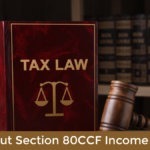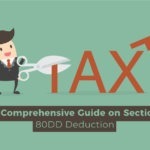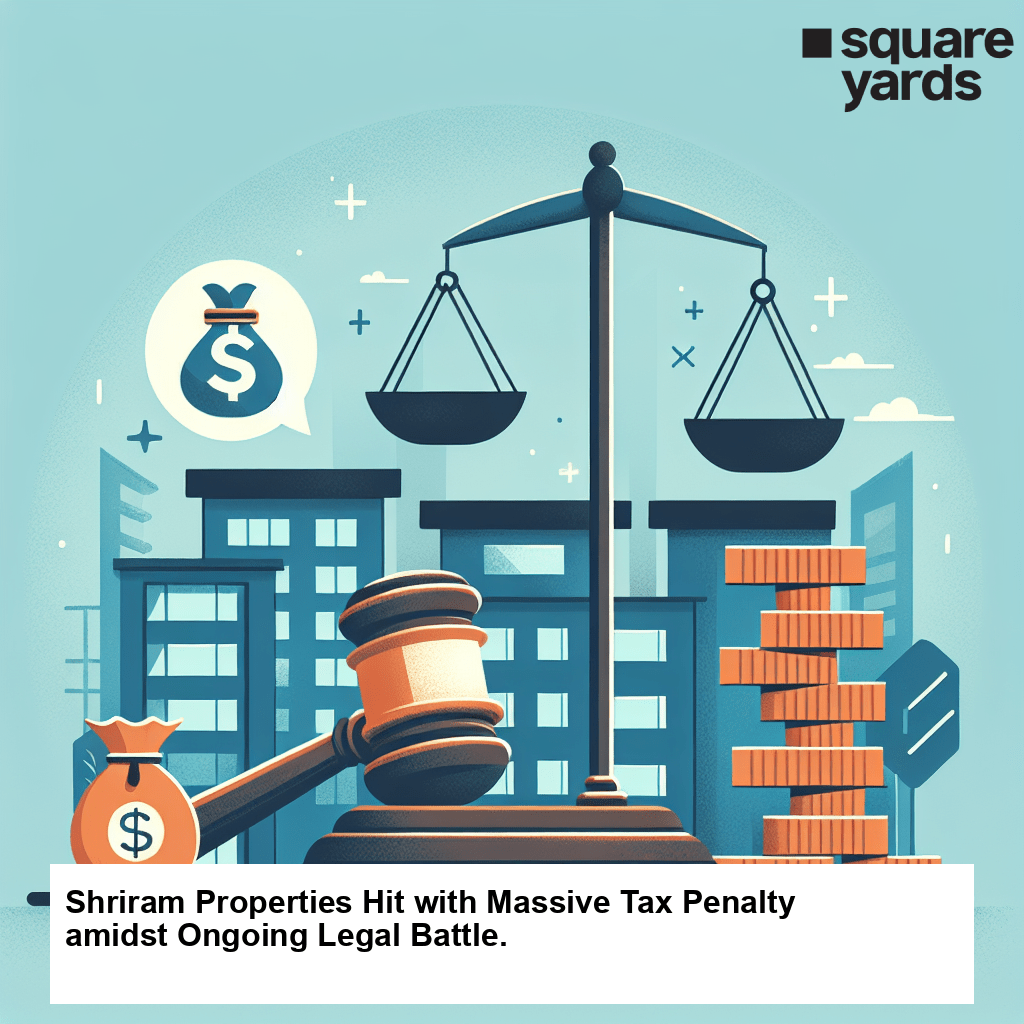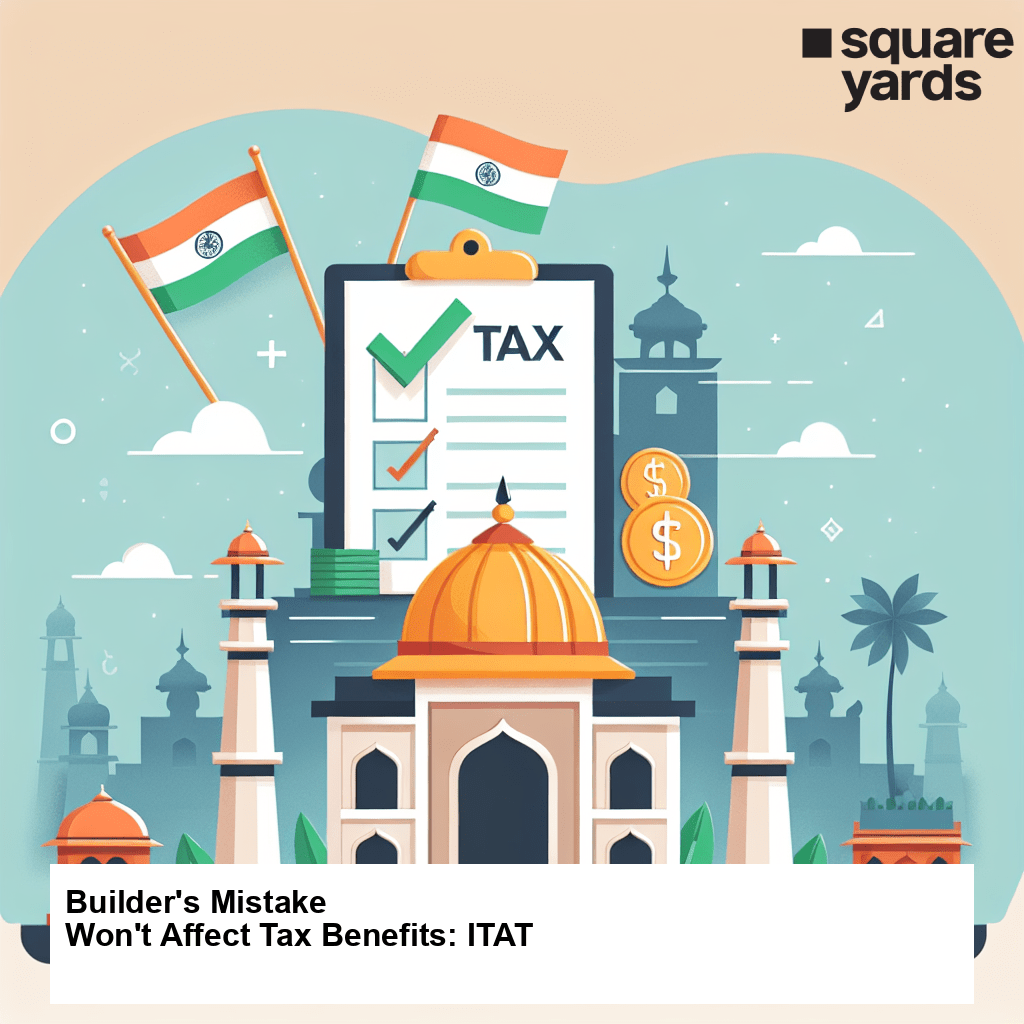The Indian Constitution offers multiple tax benefits and taxable duties on the residents and non-residents in the nation. In this, the Income Tax Act holds the significance of the financial mechanism and its duties imposed on the citizens of India. It has plenty of interesting ways to secure a balanced economy and its resource economy. One such solution is Section 80CCC of the Income Tax, which states the claims for a better tomorrow.
Let us dig out some more knowledge that might help us achieve the best perks from India’s existing finance system.
Table of contents
Section 80CCC of Income Tax Act: Meaning
Section 80CCC deduction is a sectional division in Section 80 C under Income Tax 1961. It deals with the taxable deductions on investments made by PPF, EPF/VPF, Notified Pension Funds, and Life Insurance, to name a few, that deduct up to Rs. 1.5 lakhs yearly. As per Section 80CCC, a taxpayer can claim a deduction for certain specifications mentioned under Section 10 (23AAB).
Also, as per the current regulation in India, an individual is liable to make a contribution to a yearly package of life insurance that has been registered by an authentic insurance provider in the country. This includes any other type of pension fund as well. This means no tax deduction can be claimed in case of investments in retirement schemes by mutual fund firms. Whereas National Pension System permits tax deduction claims considering another Section of the Income Tax Act- Section 80CCD.
Characteristics of Section 80CCC of the Income Tax Act of India
Below are the mentioned features of Section 80CCC Deductions stated as per the Income Tax Act, 1961.
- Any bonuses or interest from a pension plan or retirement policy are not eligible for tax deductions.
- However, the proceeds received upon maturity of the policy are taxable according to the investor’s income tax bracket.
- Pension payments from the policy are also considered taxable income.
- Tax benefits can only be claimed on the premium amount paid in the applicable fiscal year, and if the payment to the pension funds is made in a lump sum, then the tax under Section 80CCC deduction can only be claimed for the year in which it was made.
- Additionally, the cumulative threshold of Rs. 1.5 lakh is applicable to Section 80CCC tax benefits.
Eligibility for Claiming Deduction Under Section 80CCC?
As Section 80CCC deduction has some exemptions in implications, disclosing the eligibility is crucial. Check out below:
- A person can claim Section 80CCC deduction if they fall as an investor for a notified pension fund. This is an unrestricted deduction that residents and non-residents can both claim.
- This restricts Hindu Undivided Family (HUF), who cannot claim the same under Section 80CCC.
- In this, the deductible amount has to be deemed payable from the net amount of the taxable income of a pension fund holder.
- The amount claimed under Section 80CCC cannot exceed the net taxable amount.
Claim Limit of Section 80CCC
Section 80CCC of Income Tax limits the yearly deduction to be claimed for up to Rs. 1.5 lakh. This is a restriction imposed as per the Section 80C guidelines.
Difference Between 80C and 80CCC
The main difference between Section 80C and Section 80CCC deduction is that under section 80C, the amount claimed for deduction must be a portion from their total income (exemption from any pther taxation). But, in order to be eligible for a tax deduction benefit under section 80CCC, the payment to the pension fund had to be claimed with money that is taxable. In addition to this, the Section 80C deduction is also more inclusive, whereas the 80CCC deduction only includes pension funds and annuity earnings.
End Thoughts
Section 80CCC is a great insight for residents and non-residents in India to look for an advantage via the legal clause. All the details above can help you decide the eligibility and processing with no hustle.
You May Also Read:
Frequently Asked Questions (FAQs)
Can NRIs claim deduction under Section 80CCC?
Per Section 80CCC of the Income Tax Act of 1961, Non-Resident Indians (NRIs) may deduct contributions to pension schemes.
How many times during a financial year can I claim a deduction under Section 80CCC?
Income tax returns must be filed each year to collect the Section 80CCC tax deduction. Only the Financial Year (FY) in which the investment payments were made is eligible for this deduction.
What is the limit of 80CCC?
Individual contributions to specified pension schemes with life insurance are eligible for annual deductions of up to Rs. 1.5 lakh under Section 80CCC of the Income Tax Act of 1961. Section 80C limits the deduction.
What comes under Section 80CCC?
Deductions for individual contributions to specific pension plans offered by life insurance of up to Rs. 1.5 lakh every year.
What is a pension fund in Section 80CCC?
Individual contributions to specified pension schemes with life insurance are eligible for annual deductions of up to Rs. 1.5 lakh under Section 80CCC of the Income Tax Act of 1961.
Who is eligible to claim a deduction under Section 80CCC?
Except for HUF, any individual, either resident or non-resident, can claim the benefits of Section 80CCC Deductions.






























































